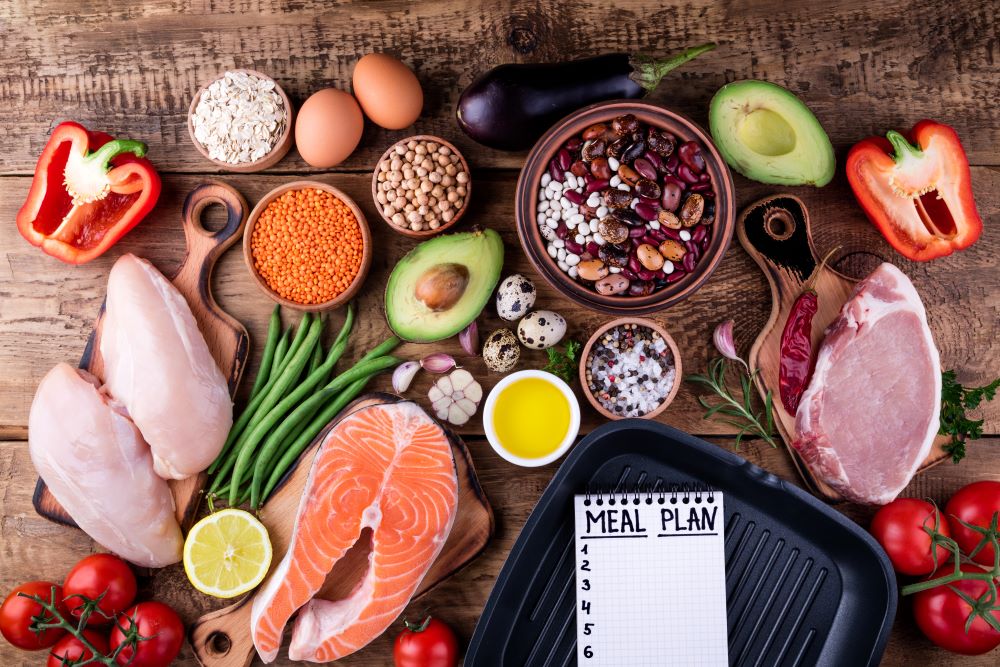Marathon training meal plan and schedule
Marathon training is a demanding process that requires a well-balanced and nutritious diet to support the athletic performance of runners. With the right meal plan and schedule, runners can ensure that their bodies have the necessary energy and nutrients to fuel intense training sessions and promote faster recovery times. In this article, we will delve into the components of a successful marathon training meal plan and schedule.
Marathon Training Meal Plan
A successful marathon training meal plan should focus on providing the body with a balance of carbohydrates, protein, and healthy fats. Carbohydrates are the primary energy source for the body during intense physical activity. Protein is essential for repairing and rebuilding muscle tissue. Healthy fats help to support overall health and provide a sustained source of energy during long runs.
A typical meal plan for marathon training should include a variety of nutrient-dense, whole foods. These will include foods such as complex carbohydrates (such as whole grains, fruits, and vegetables), lean proteins (such as chicken, fish, and legumes), and healthy fats (such as nuts, seeds, and avocados). Additionally, runners should aim to consume enough fluids to stay hydrated, especially during long runs.
Marathon Training Meal Schedule
The timing of meals is just as important as the content of the meal plan. Runners should aim to consume a meal rich in carbohydrates 2-3 hours before a long run. This is to ensure that glycogen stores are fully replenished. Additionally, consuming a protein-rich meal immediately after a long run will help to promote recovery and reduce muscle damage.
Runners should also be mindful of their fluid intake and aim to stay hydrated throughout the day, especially during long runs. Consuming 30 to 60 grams of carbohydrates per hour during a marathon can help to maintain blood glucose levels, prevent fatigue, and enhance performance. It is also recommended to consume a meal rich in carbohydrates after a long run to aid in replenishing glycogen stores and promoting recovery.
Customizing the Marathon Training Meal Plan and Schedule
The recommended meal plan and schedule for marathon training can vary greatly. This will depend on the individual’s level of activity and intensity of training. It is essential to find the right balance that works for each runner. It may take some trial and error to find the optimal meal plan and schedule.
Runners should also consider their personal preferences and goals when determining their marathon training meal plan and schedule. For example, runners who are trying to lose weight may require a lower carbohydrate intake. Runners who are trying to build lean muscle mass may require a higher protein intake.
Importance of Consistency
Consistency is key when it comes to a successful marathon training meal plan and schedule. Runners should aim to eat a balanced and nutritious diet every day, not just on days when they are training. This consistent intake of essential nutrients helps to support overall health and performance. It also ensures that the body has the necessary energy and nutrients to fuel intense training sessions.
Incorporating Supplements into the Marathon Training Meal Plan
Incorporating supplements into the marathon training meal plan can provide additional support for runners during the demanding process of training for a marathon. However, it is essential to understand that supplements should not replace a balanced diet. Supplements should only be used as an addition to a healthy meal plan.
 Common supplements for runners include electrolyte replacement drinks, protein powders, and energy gels. Electrolyte replacement drinks can help to replenish essential nutrients lost during intense physical activity and promote hydration. Protein powders can provide a convenient source of protein for runners who struggle to meet their protein requirements through food alone. Energy gels can provide a quick boost of carbohydrates during long runs and help to maintain blood glucose levels.
Common supplements for runners include electrolyte replacement drinks, protein powders, and energy gels. Electrolyte replacement drinks can help to replenish essential nutrients lost during intense physical activity and promote hydration. Protein powders can provide a convenient source of protein for runners who struggle to meet their protein requirements through food alone. Energy gels can provide a quick boost of carbohydrates during long runs and help to maintain blood glucose levels.
It is important to consult with a healthcare professional or registered dietitian before incorporating supplements into the marathon training meal plan. They can interact with certain medications and may not be appropriate for everyone. Additionally, supplements should always be used in conjunction with a balanced diet. They should not replace essential nutrients that can be obtained from whole foods.
Conclusion:
A successful marathon training meal plan and schedule are essential for supporting the athletic performance of runners and promoting faster recovery times. Runners should focus on consuming a balanced diet that includes carbohydrates, protein, and healthy fats, and aim to consume enough fluids to stay hydrated.
The timing of meals is also crucial. Meals rich in carbohydrates should be consumed 2-3 hours before a long run. Protein-rich meals should be consumed immediately after a long run. Ultimately, each runner should customize their marathon training meal plan and schedule based on their individual level of activity, training schedule, and personal goals. Consistency is key, and runners should aim to eat a balanced and nutritious diet every day to support overall health and performance.
[wpchatai]


